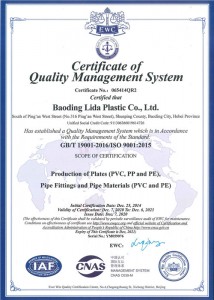Dec . 12, 2024 01:16 Back to list
high density polyethylene board
Understanding High-Density Polyethylene Boards Versatile Solutions for Modern Applications
High-Density Polyethylene (HDPE) boards offer a unique combination of durability, versatility, and environmental resistance, making them an ideal choice for various industrial and commercial applications. Characterized by their high molecular weight, HDPE boards boast superior strength and excellent impact resistance, which makes them suitable for demanding environments.
One of the most notable properties of HDPE is its resistance to moisture and chemicals. Unlike traditional materials that may degrade upon exposure to water or harsh substances, HDPE remains unaffected, making it a preferred material in industries such as food processing, agriculture, and construction. For example, in the food industry, HDPE boards are commonly used for cutting surfaces, where hygiene and resistance to staining are crucial.
Understanding High-Density Polyethylene Boards Versatile Solutions for Modern Applications
Sustainability is another critical factor driving the popularity of HDPE boards. Being a recyclable plastic, HDPE can be repurposed at the end of its life cycle, thus reducing waste and environmental impact. As the world increasingly shifts toward eco-friendly materials, the use of HDPE boards aligns with sustainable building practices. Many manufacturers now produce HDPE from recycled materials, further enhancing its appeal to environmentally-conscious consumers.
high density polyethylene board

The applications of HDPE boards are extensive. In the agricultural sector, they serve as reliable materials for building structures such as storage bins, silos, and barriers. Their resistance to UV rays and weathering means they can withstand harsh outdoor conditions without significant deterioration. In addition, HDPE boards are often used in infrastructure projects, such as retaining walls, playground equipment, and marine constructions due to their resilience and longevity.
HDPE boards also find their place in the art and design industries. Their availability in various colors and finishes allows designers to create aesthetically pleasing products while maintaining functional integrity. From signage to display boards, the adaptability of HDPE makes it an innovative choice for creative applications.
Another advantage of HDPE boards is their low maintenance requirements. Unlike wood, which may need regular treatment to prevent rot and insect infestation, HDPE boards resist fading, staining, and corrosion. This characteristic translates into lower maintenance costs and prolonged lifespan, making them a cost-effective solution in the long run.
In summary, high-density polyethylene boards represent a remarkable advancement in materials science, providing a blend of versatility, strength, and sustainability. Their applicability across numerous industries underscores their importance in modern manufacturing and construction practices. As the demand for durable and environmentally friendly materials increase, HDPE boards are likely to play a significant role in the future of design and construction, reflecting an awareness of both performance and ecological responsibility.
Whether used in industrial applications or everyday products, high-density polyethylene boards continue to showcase their advantages, assuring consumers and manufacturers alike of their reliability and efficacy in various settings. The trend toward using HDPE boards is not merely a fleeting moment; it signifies a broader movement towards innovation and sustainability in material science.
-
High-Quality PPR Pipes and Fittings Durable ERA PPR & PVC PPR Solutions
NewsJul.08,2025
-
Black HDPE Cutting Board - Durable, Non-Porous & Food Safe HDPE Plastic Cutting Board
NewsJul.08,2025
-
High-Quality CPVC Panel Durable HDPE & PVC Panels Supplier
NewsJul.08,2025
-
Double PE Welding Rod Supplier - High Strength, Durable & Versatile Welding Solutions
NewsJul.07,2025
-
High-Quality PVC-O Pipe Supplier Durable 75mm PVC Pipe & Connections Leading PVC Pipe Company
NewsJul.07,2025
-
HDPE Drainage Pipe Supplier – Durable & Corrosion-Resistant Solutions
NewsJul.06,2025

